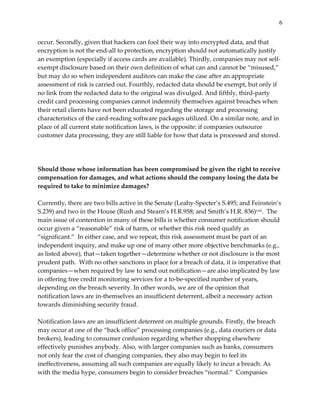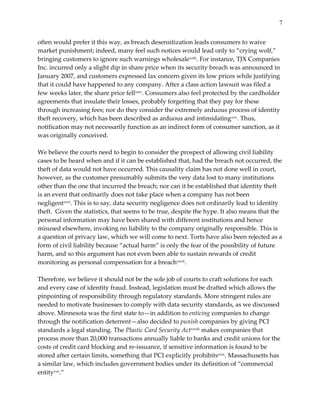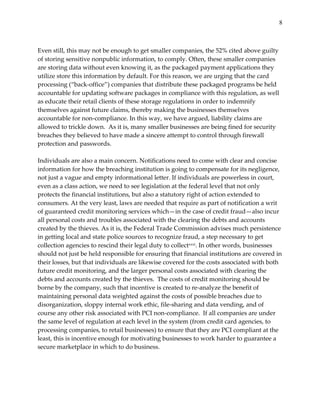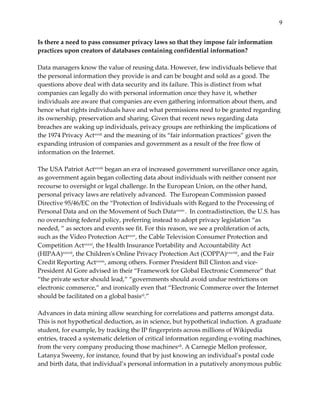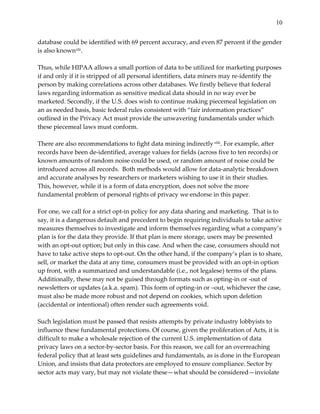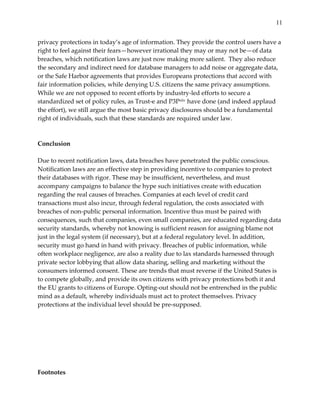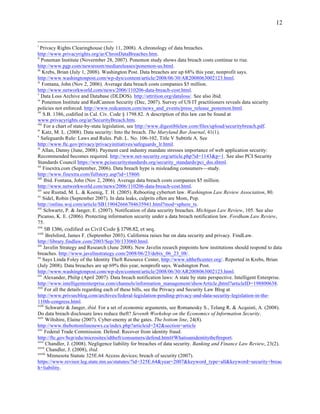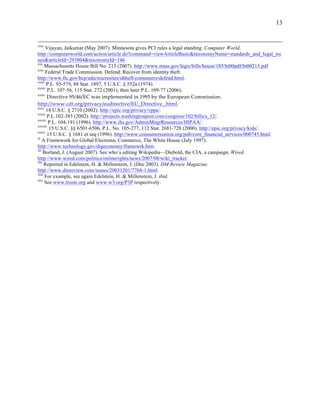This document summarizes a paper about increasing data breaches and the need for legislation to address the problem. It notes that over 233 million US records have been exposed due to breaches since 2005. The document discusses the costs of breaches to companies and common causes, such as lost or stolen devices. It argues that while some states have breach notification laws, federal legislation is needed to standardize security practices and privacy protections across industries. The paper aims to examine if legislation is needed to reduce breaches, when people should be notified of breaches, and if compensation should be required.
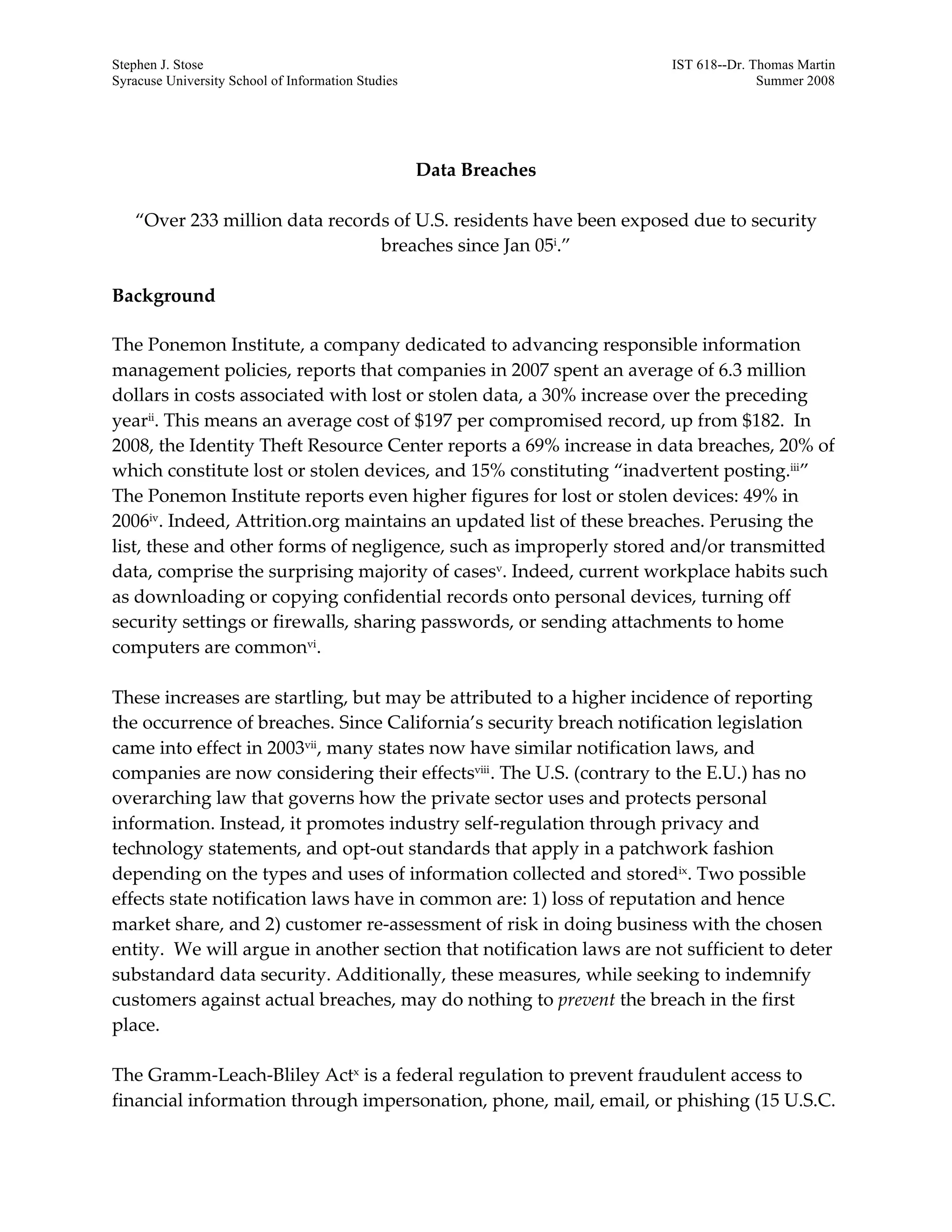
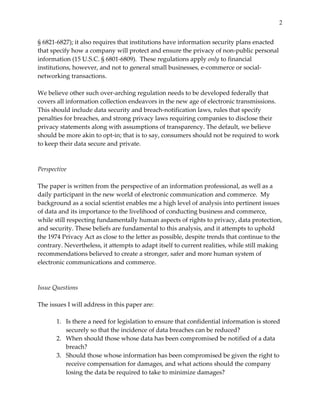
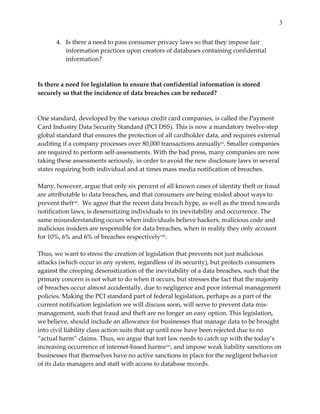
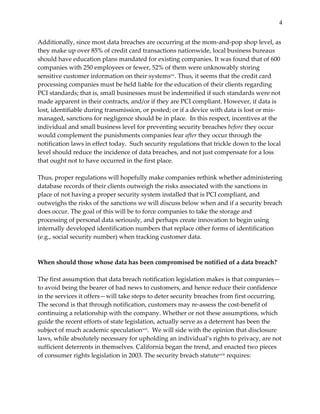
![5
"ʺany person or business that conducts business in California, and that owns or
licenses computerized data that includes personal information, [to] disclose any
breach of the security system…to any resident of California whose unencrypted
personal information was, or is reasonably believed to have been, acquired by
an unauthorized person."ʺ
As this legislation applies only to “unencrypted personal information,” in order to
avoid liability under the statute, a company need only encrypt computerized non-‐‑
public information. Additionally, “unauthorized” access becomes authorized once
companies require need-‐‑to-‐‑know permission standards through the establishment of
passwords and mandatory employee training on information security standardsxviii . We
applaud this groundbreaking first attempt at providing incentive to companies to
safeguard the data of their clients.
Javelin Strategy and Research published a study that found 30% of consumers (in their
5 year longitudinal sample) were victims of data breach, with only 6% of those suffering
identity fraudxix. Thus, notification laws, if they do function as deterrents, need go hand
in hand with public education. That is, incidences of fraud were much more likely
(30%) to occur due to lost or stolen personal items (e.g., wallets), suggesting that the
recent public hype fed by media attention may only get worse if every time a breach
occurs people must be notified by law. It is not clear whether companies are releasing
data breach information because they are starting to be more vigilant in seeking
breaches (presumable, because of the new laws in some states), or in order to control
their public imagexx. This makes it difficult to attribute the sudden increases to more
reporting, or whether it reveals actual new vulnerabilities in data processing and
storage.
Approximately 44 states now have notification laws, and while the rationale for these
are fundamentally the same, the details widely diverge. Some states require that a
credit card’s access code be divulged to justify the disclosure of breaches (e.g.,
California’s), while this is not so in the Kansas bill. Only some require the secure
destruction of sensitive data on paper. Pennsylvania considered legislation to close the
encryption exemption, requiring disclosure even if the data were originally encrypted.
Eighteen states deem the “belief” (by whom?) that stolen data will “not be misused” as
an exemption; and others exempt disclosure if card number have been redacted in
another formxxi. These discrepancies lead to public relations issues when disclosing to
customers in some states but not others, among other possible confusions nationwide.
We feel strongly about five exemptions to disclosure. Firstly, in order not to unduly
alert consumers, if card numbers cannot be linked to access codes, notification need not](https://image.slidesharecdn.com/databreachstose1-121213095226-phpapp02/85/Data-Breaches-5-320.jpg)
